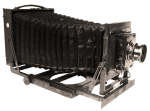Technology and the Last 100 Years
It’s An Age Related Thing
Somehow we have become used to the kind of technology we have known of in our lifetime. For those of us a bit older change has crept upon us, but it can even be worse than that. We firstly grew up in a very different sort of analog era. Now we are being told that is old hat, we have to get with the digital age. I can tell you that it is difficult to be trained in analog electronics and then have to learn a totally new approach in digital.
For any younger generation it is more a case of never knowing anything different. How many under 20 to 30 or so would know anything about records, cassettes, 8 track cartridges, the top 40 on AM radio etc.? A digital world is all they have known and as such it becomes a natural environment to them.
But, It Wasn’t Always Like This
Mankind has only been able to record happenings of daily life in detail in the last 100 years or so. Prior to this the only means we had to record anything was to write about it or draw or paint a picture. And for much of that history the method of recording has been analogue based, that is, based upon values in a continuous scale. Such as a clock with continuously moving hands or a stylus playing the grooves on a record.
In about the 1990s much of what we were doing became digitally based. Our favorite piece of music now becomes a rapid stream of different numbers. Thus a computer can record and play the music of Beethoven. Television grows from 4 available channels to 100.
The Way we Record Has Changed
Up until very recent times recording has also been mostly based upon media that is degradable. What do I mean by degradable? We see it in fading photographs, very early films that end up as a pile of brown dust in the film can or later films smelling like vinegar. Some sound recording tape turning sticky making it difficult to play until specially treated. VHS video tapes with worsening picture problems and much more.
Now, in the digital age that is not so much of a problem. Mediums are still to some extent made using degradable organic materials, but these are generally far more stable and longer lasting. The biggest advantage we have now though is having once created a digital recording or copied from an analogue media to a digital one it is now possible to copy this recording without quality loss. It is also possible to restore that recording and even improve it beyond the original. Or to archive a copy for further restoration using computer applications and methods yet to be invented.


